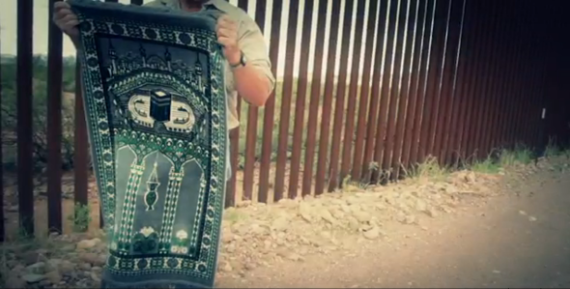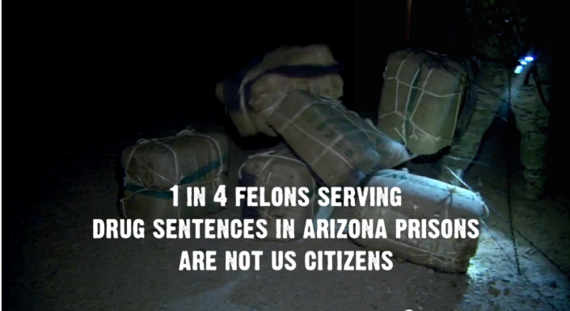If you haven't read my other article, we're moving from the pharmaceutical industry to an entirely different type of drug.
With the much-touted arrest of Joaquin "El Chapo" Guzman in February, the United States has won a battle. Not on the drug war itself, but on the perception that we are somehow winning. The Los Angeles Times called the capture a "symbolic blow," musing on whether or not his removal will even affect the drug trade, considering that his Sinaloa cartel "has already expanded to more than 50 countries in the Americas, Europe and Africa, and is likely to continue without him." The Congressional Research Service goes further, stating that in 2012, "General Charles Jacoby testified to the Senate Armed Services Committee that Mexico had at that time succeeded in capturing or killing 22 out of 37 of the Mexican government's most wanted drug traffickers." He "noted that their removal had not had "any appreciable positive effect" in reducing the violence."
Despite the news of Guzman's arrest, the situation in Arizona remains harrowing. Regardless of whether or not it can be considered the Kidnapping Capital of the U.S.A., Phoenix has become a hub for illicit activity, with the state serving as the largest drug gateway into America. And with drugs comes violence. To provide context, in 2012 Phoenix had an average violent crime rate of 373 per 100,000--beating out the national average by 159. That same year, New York City had an average of 343.3 violent crimes, despite a much denser population (8.4 million compared to Phoenix's 1.5 million.) In a 2013 report compiled by the Arizona Department of Public Safety, Maricopa County, which houses Phoenix, saw a total of 18,334 drug-related arrests. And with an ounce of meth worth 10 times as much as gold, the war shows no signs of slowing. (On Oct. 28, 2014 gold was $1,230 an ounce, compared to estimates around $800 an ounce for cocaine, with prices rising as it crosses state lines.)
Outside of Phoenix, smugglers are utilizing Federal and State Parks as pathways into the United States, headed for the more lucrative trade centers on the East Coast (90% of the drugs smuggled through Arizona travel out of state, with Chicago quickly becoming one of the largest trading hubs.) Signs in state and federal parks, such in the 3,500-acre Buenos Aires National Wildlife Refuge, warn visitors of an "Active Drug and Human Smuggling Area. If you see Suspicious Activity, Do Not Confront." Where travelers were once warned of bears and coyotes, these smugglers are quickly becoming the new carnivores. A female rancher near the border, requesting anonymity, reported to The Blaze, "we may be bound to the laws of our country, but we're living by the law of the cartels."
Local ranchers have also reported finding articles such as Arabic prayer rugs and hijab-style clothing discarded near their homes and yards. The US Border Patrol has extensive reports detailing the apprehension of over 700,000 non-Mexican illegals, mostly from the Middle East, including Syria and Somalia.
While many Americans are fully aware of the immense cost of the drug war (the US Federal Government spent over $15 billion on it in 2010, or about $500 per second that year) there are less overt ramifications in Phoenix as well. 1 in 4 felons serving drug sentences in the Phoenix prison system are not US Citizens, and many of those captured are known as "foot soldiers," the lowest rung of the cartel totem pole, and relatively dispensable to their organizations. These are the men and women whom American taxpayers are now paying to feed, clothe, and house.
So while we may celebrate the capture of a symbolic figurehead of the global drug trade, the realities of the situation can't simply be solved by a name on a headline. The United States needs a more aggressive and comprehensive border policy that targets the realities of the situation, and not a glamorized one-liner that falsifies the idea of our successes on the battlefield.


